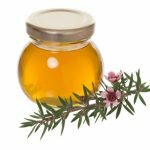Antioxidants may help restore your vitality
In one study of 200 patients with cachexia, UK researchers found that a daily high-calorie/high-protein supplement, enriched with the antioxidants, vitamins C and E, and about 2 grams of omega-3 fatty acids prompted a significantly higher rate of weight gain, increased lean body mass and improved quality of life compared to subjects who received a similar supplement, but without the added vitamins and omega-3 fatty acids.
Unfortunately, many doctors would reject this type of supplement regimen because of a belief that antioxidants interfere with chemotherapy and radiation therapies. Some of these types of cytotoxic therapies create free radicals that may help kill cancer cells. Researchers have theorised that antioxidant supplements might impede cytotoxic therapies. Some even suggest that patients treated with these therapies should avoid antioxidant-rich foods, which would cut virtually all fruits and vegetables from a cancer patient’s diet.
This theory was given a boost late last year with an article that appeared in the journal CA – A Cancer Journal for Clinicians (published by the American Cancer Society). The article was written by Gabriella M. D’Andrea, M.D., of the Memorial Sloan-Kettering Cancer Centre. And the title of the article tells you just about everything you need to know about its content: ‘Use of Antioxidants During Chemotherapy and Radiotherapy Should Be Avoided.’
Doctors comment on the use of antioxidants during cancer treatment
On the web site for CA – A Cancer Journal for Clinicians, several doctors and nutritionists have submitted their reactions to Dr. D’Andrea’s article.
Hal Gunn, M.D., director of the Centre for Integrated Healing in Vancouver, B.C., Canada, writes: ‘Belief and opinion do not constitute science.’ He notes that Dr. D’Andrea doesn’t mention any of the studies in the ‘growing substantial body of supportive evidence’ that demonstrate the significant benefits of antioxidant use during chemo and radiation.
A clinical nutritionist named Neil E. Levine offers a more exhaustive rebuttal; complete with footnotes identifying many of the studies Dr. Gunn refers to. Here’s a sampling of Mr. Levine’s antioxidant defence:
* Radiation and chemo treatments have been enhanced by vitamin E use (Clinical Cancer Research, 2002)
* Vitamin E and selenium enhanced the effects of anticancer drugs (Pathology & Oncology Research, 2005)
* Vitamins C and E have been shown to improve side effects of free radical damage to normal cells caused by radiation and chemo (Integrated Cancer Therapies, 2004)
* Prostate cancer cell cultures were sensitive to lycopene, which increased apoptosis (spontaneous cell death) and arrested the cell cycle (Biochimica et Biophysica Acta, 2005)
* Recent studies show vitamin E may induce apoptosis in a wide variety of cancers, including breast, prostate, lung, colon, ovarian and cervical (Journal of Nutrition, 2004)
* Several studies have demonstrated that antioxidants lessen side effects of chemo (Integrated Cancer Therapies, 2004)
* Harsh radiation side effects were reduced with high doses of beta-carotene and vitamin E (Journal of Clinical Oncology, 2005)
* CoQ10 enhanced the efficacy of tamoxifen (Molecular and Cellular Biochemistry, 2005)
Mr. Levine also offers this quote from Patrick Quillin, Ph.D., the director of Nutrition, Cancer Treatment Centres of America: ‘Malnutrition actually kills about 40 percent of cancer patients.’
If you’re being treated for cancer by a doctor who believes that antioxidants may interfere with your therapy, share this information with him and discuss the possibility that antioxidant use may in fact be one of the keys to cancer treatment success.
Did you find this information useful?
Then why not get more expert health recommendations just like this delivered direct to your inbox?
"It is truly refreshing to read a newsletter on the topic of alternative medicine which is scientifically based and reviewed by professionals..." - Robert Sinott
We respect your privacy and will never share your details with anyone else.
Disclaimer: This article is part of the Daily Health's extensive research archive. The research and information contained in this article was accurate at the the time of publication but may have been updated since the date of publication. Consult our most recent articles for the latest research on alternative health and natural breakthroughs.
Bear in mind the material provided in this content is for information purposes only. We are not addressing anyone’s personal situation. Please consult with your own physician before acting on any recommendations contained herein.












